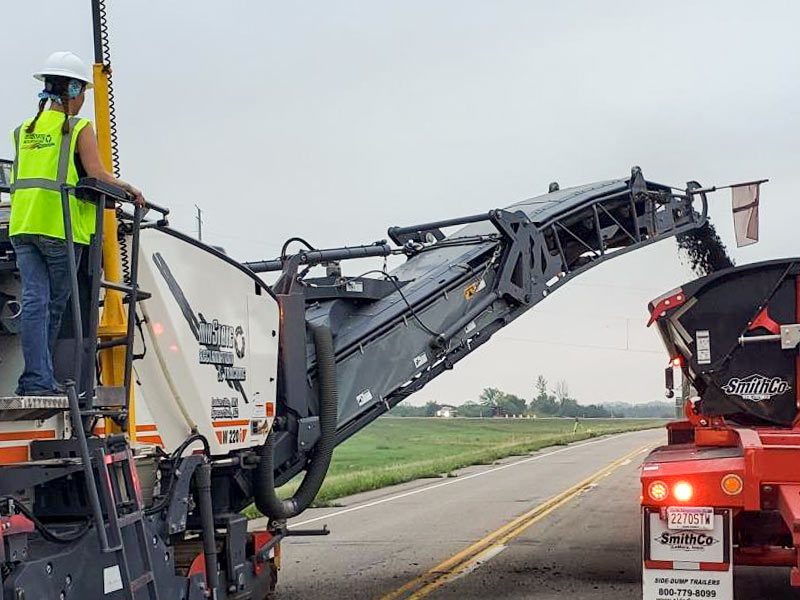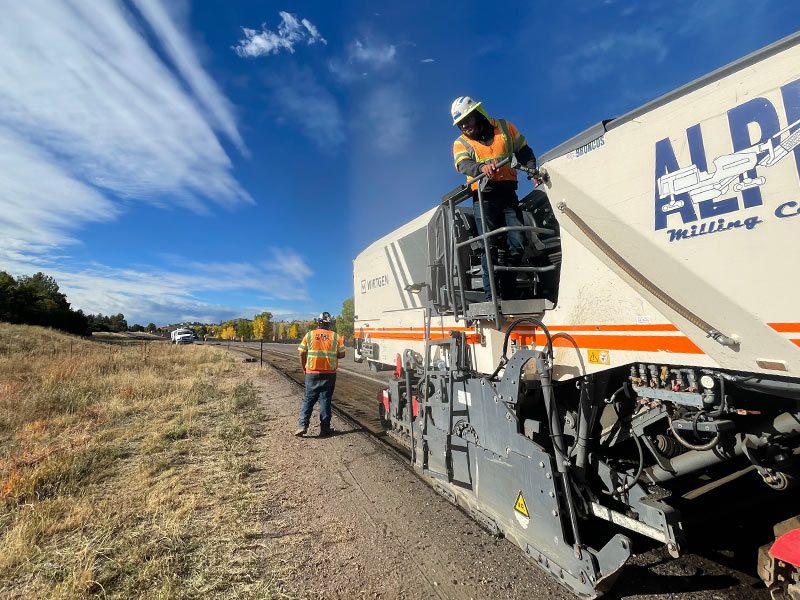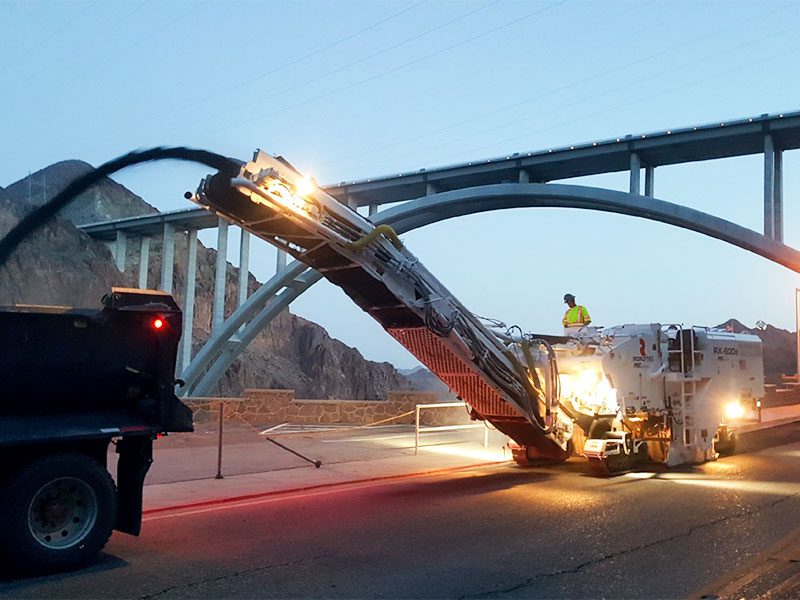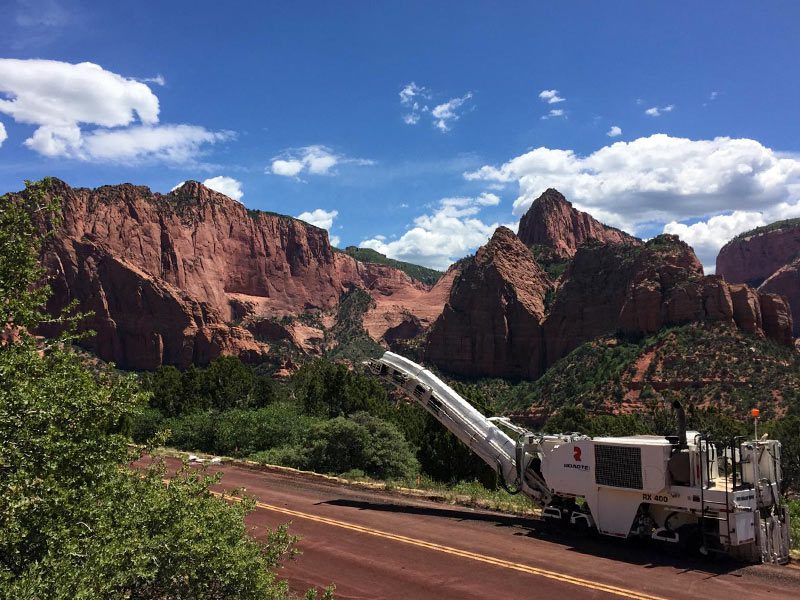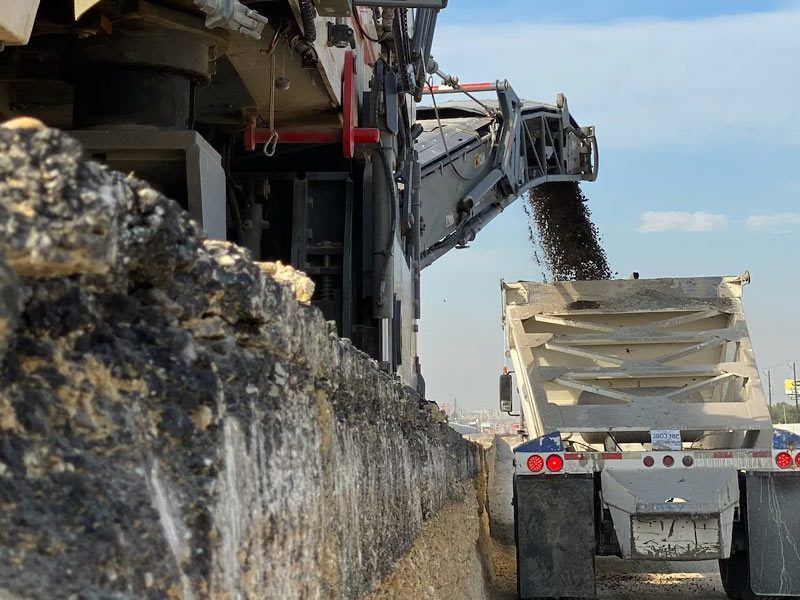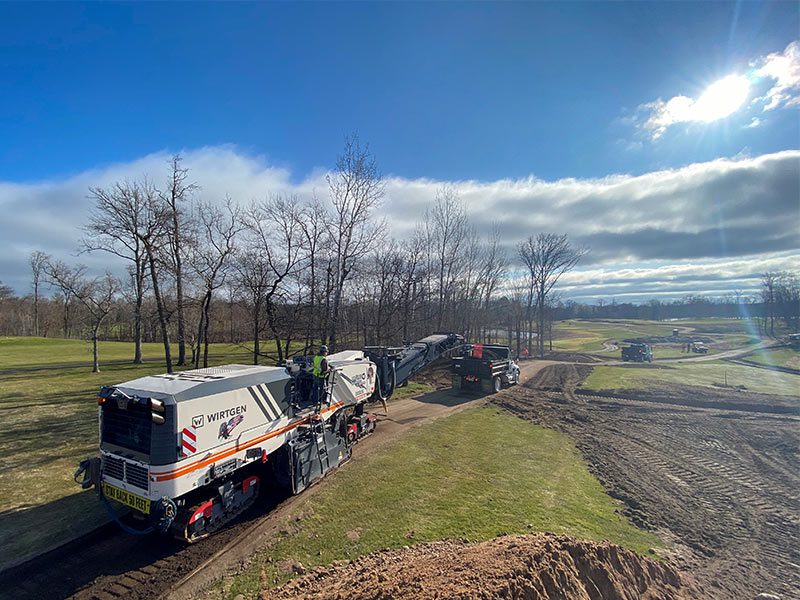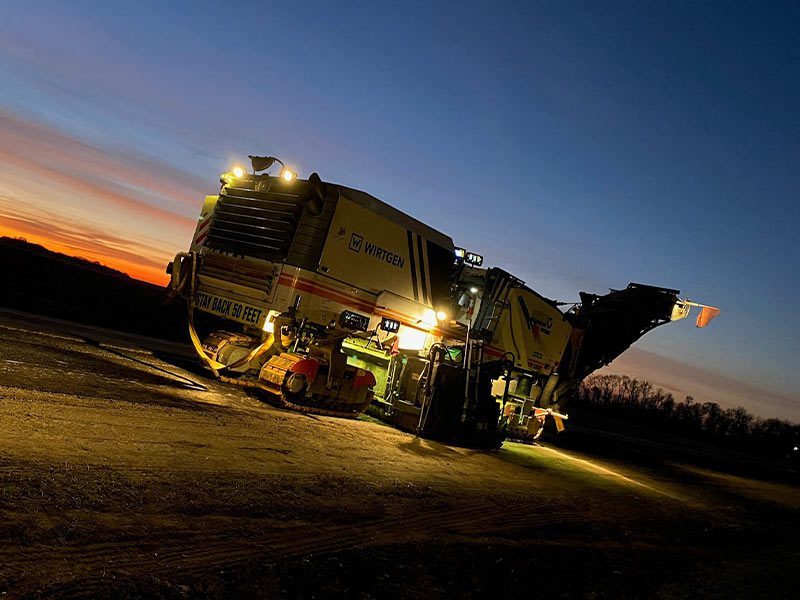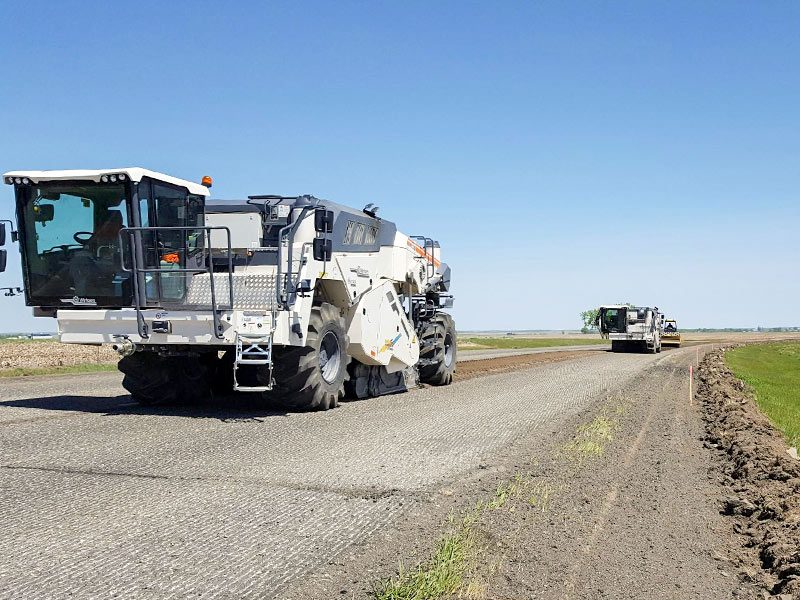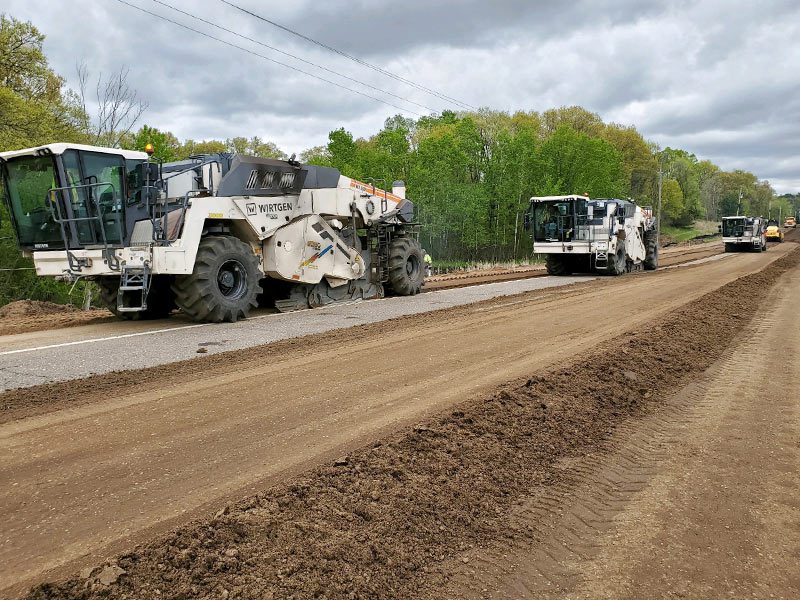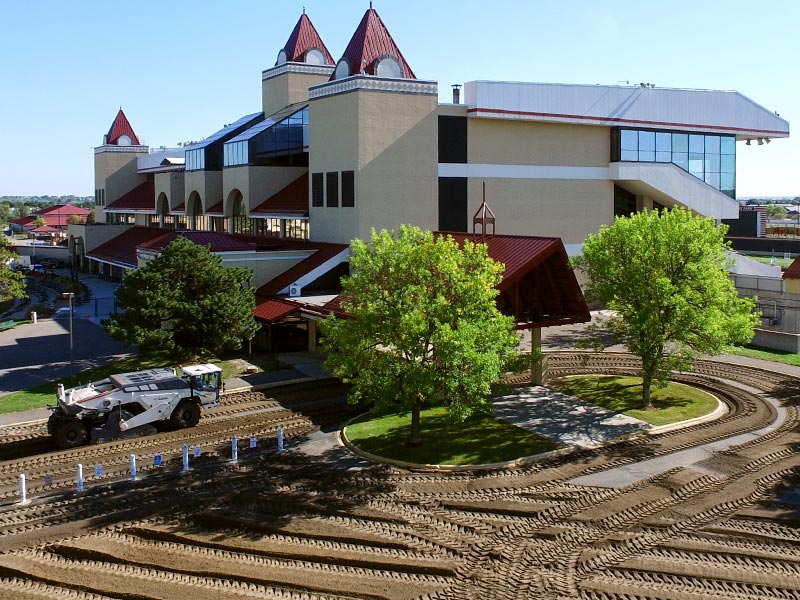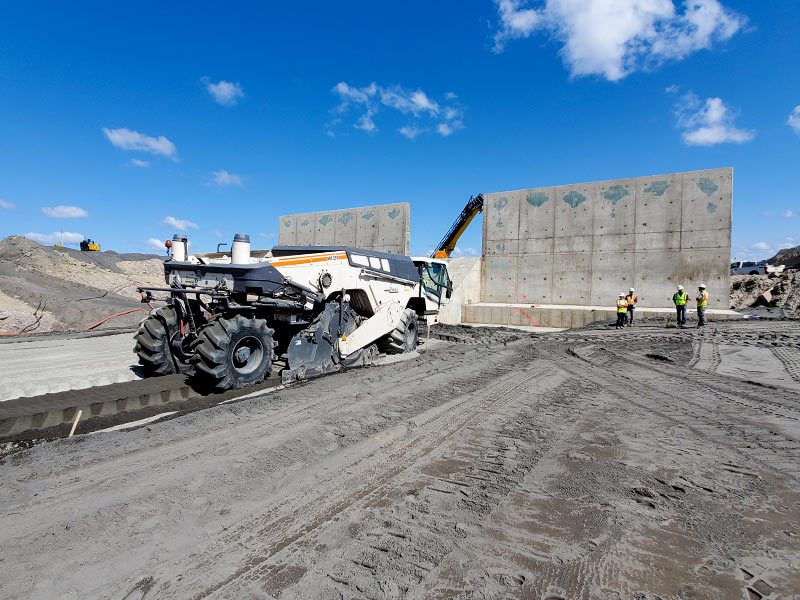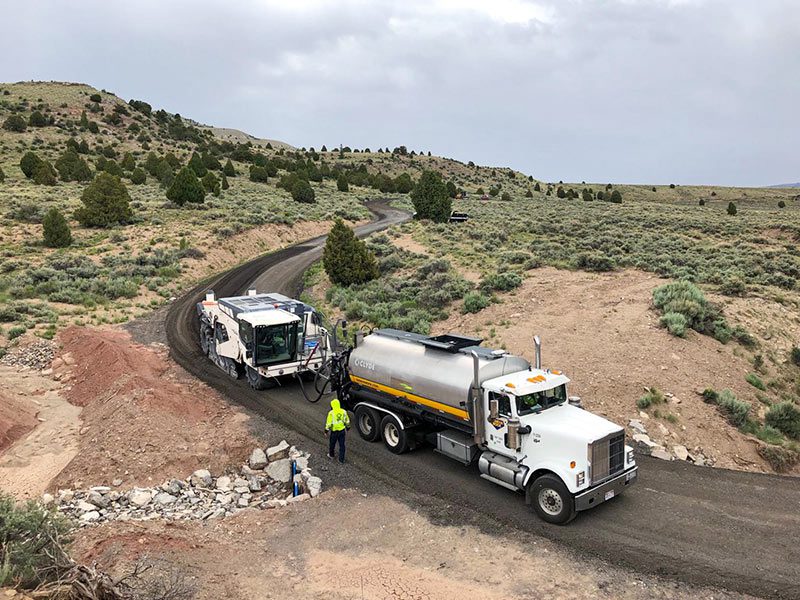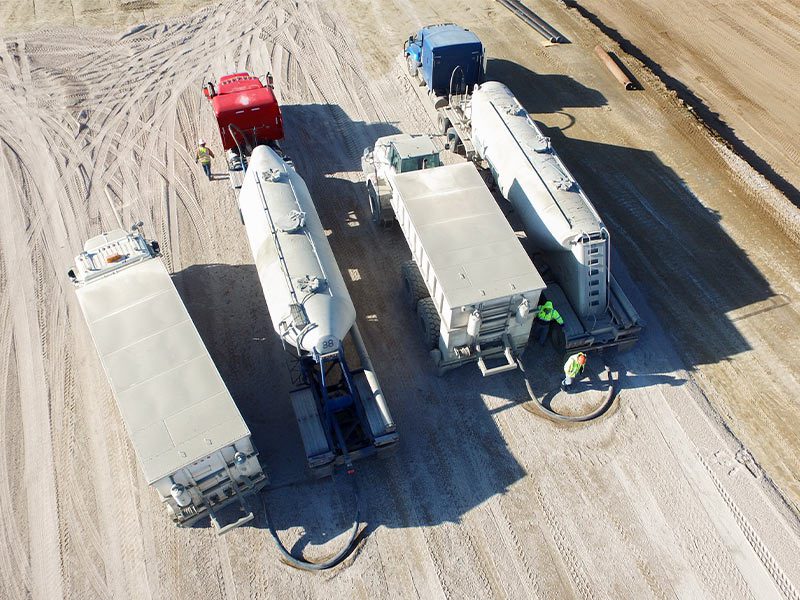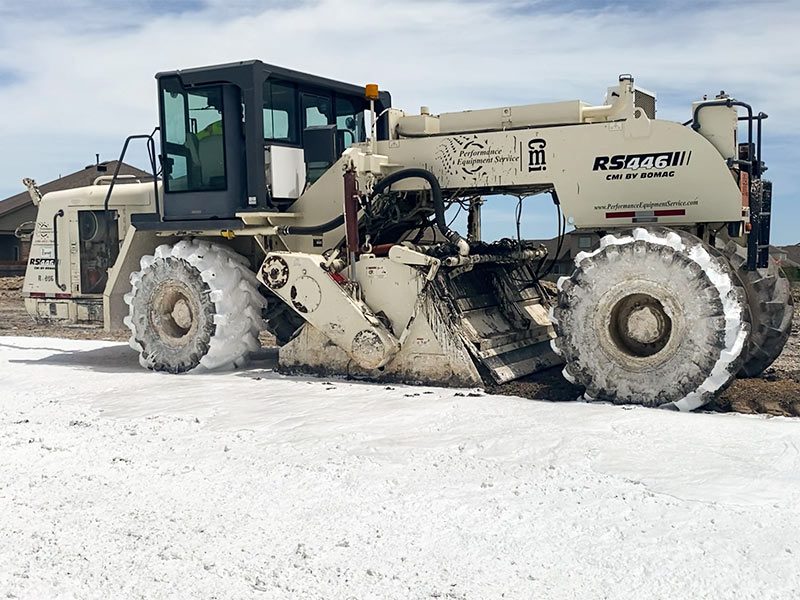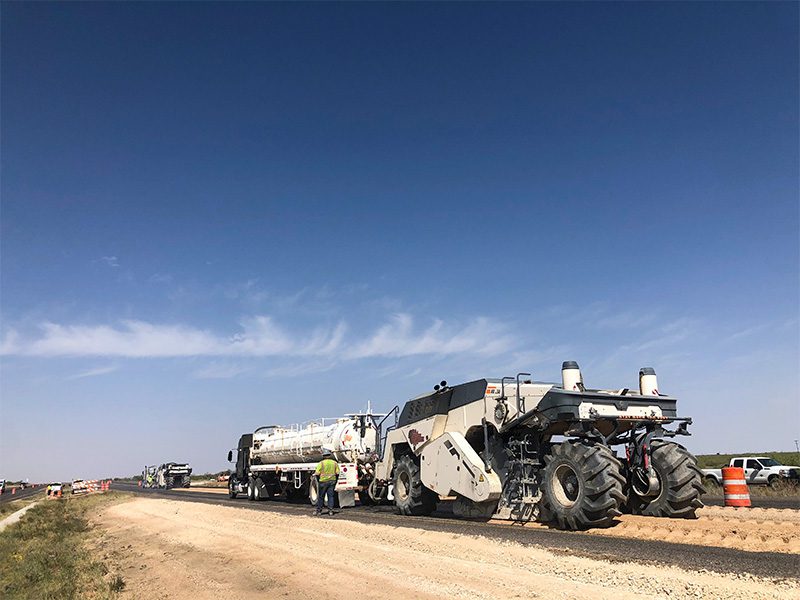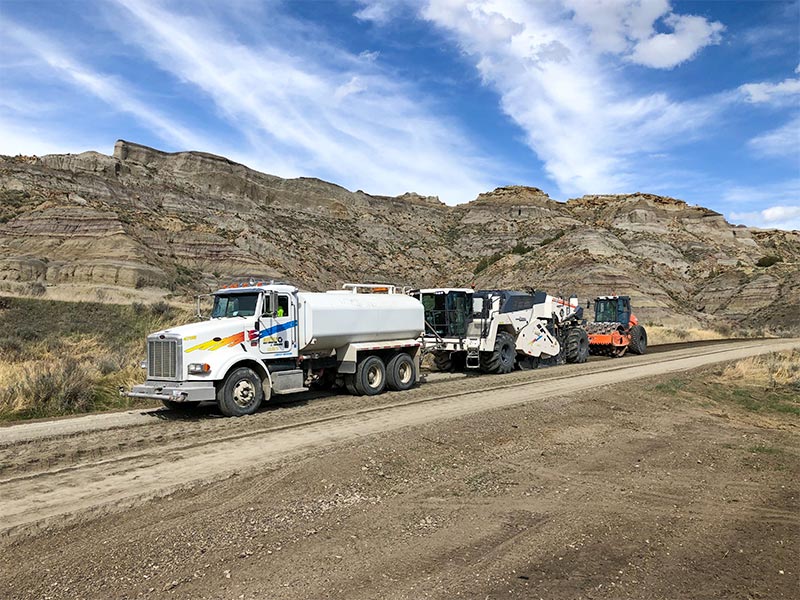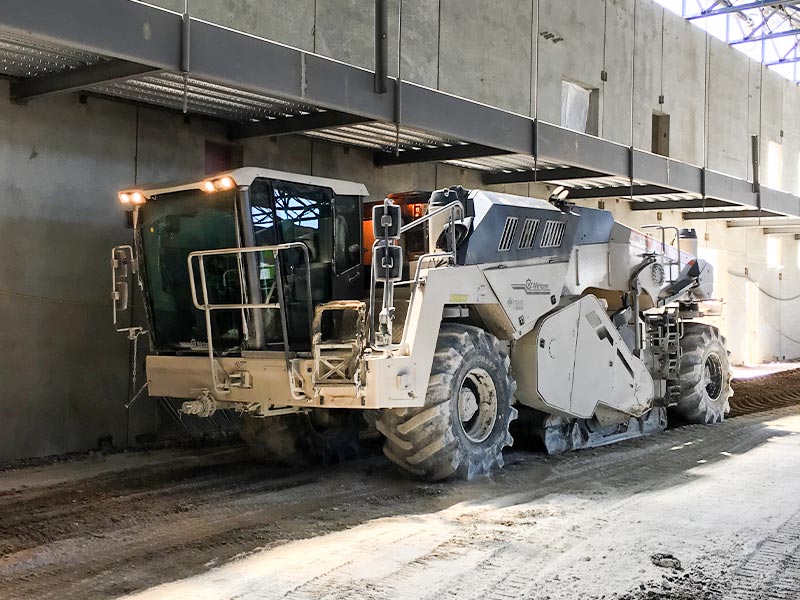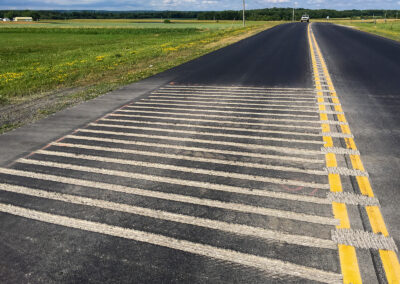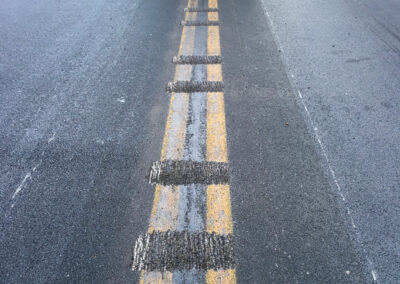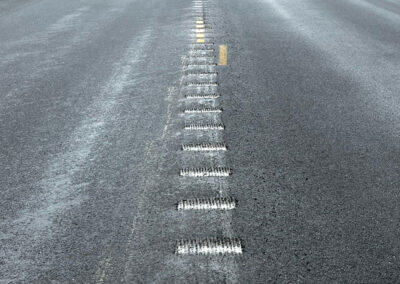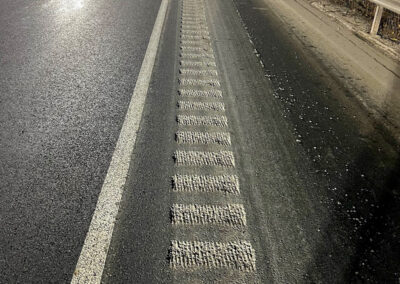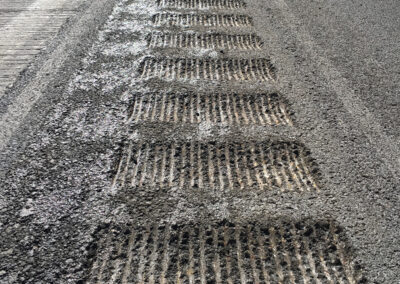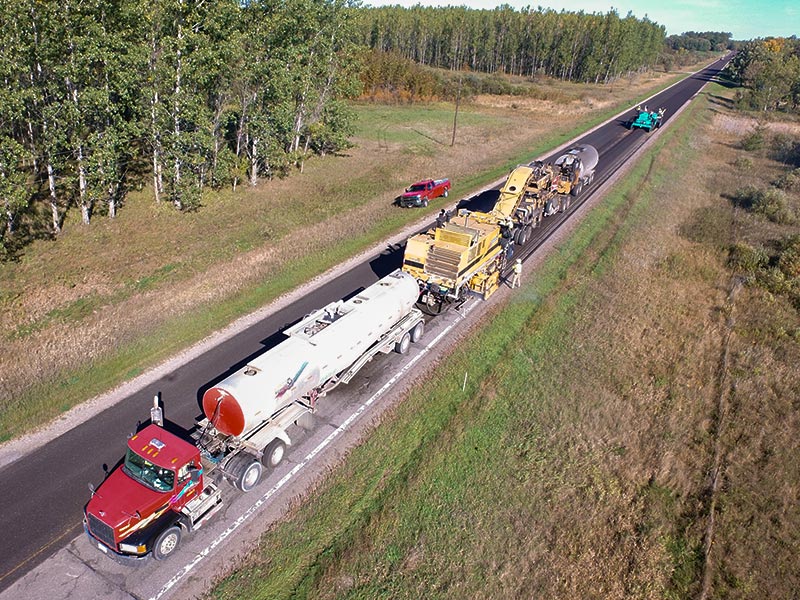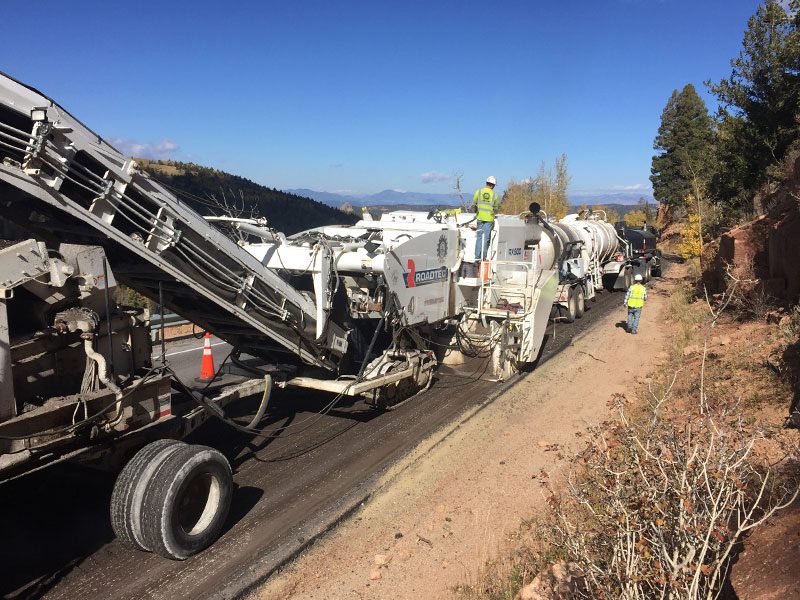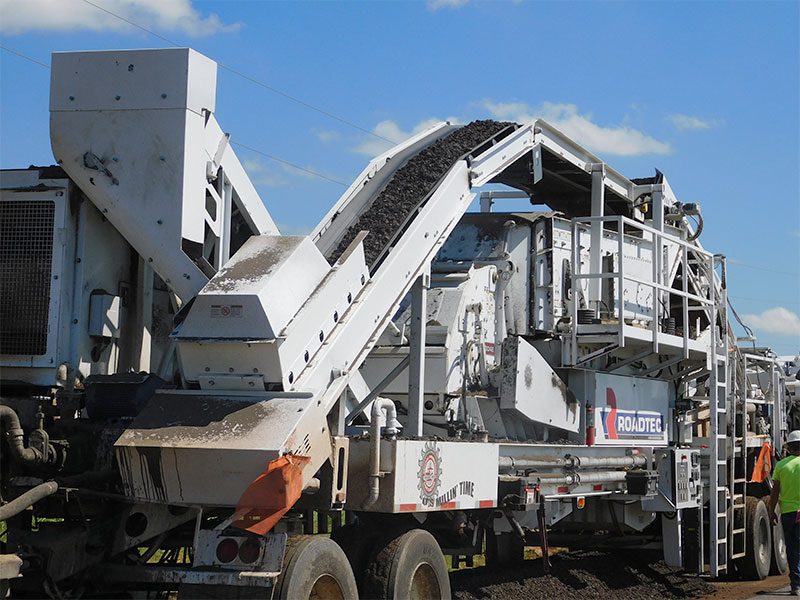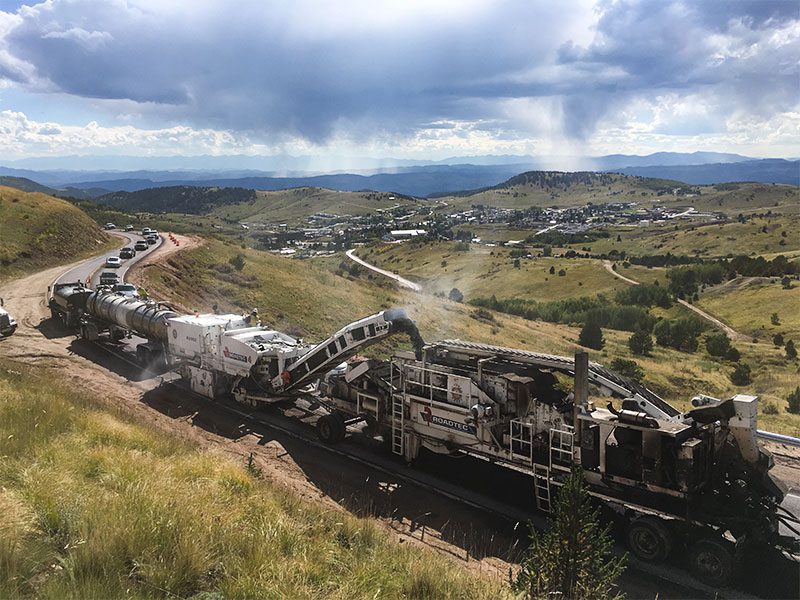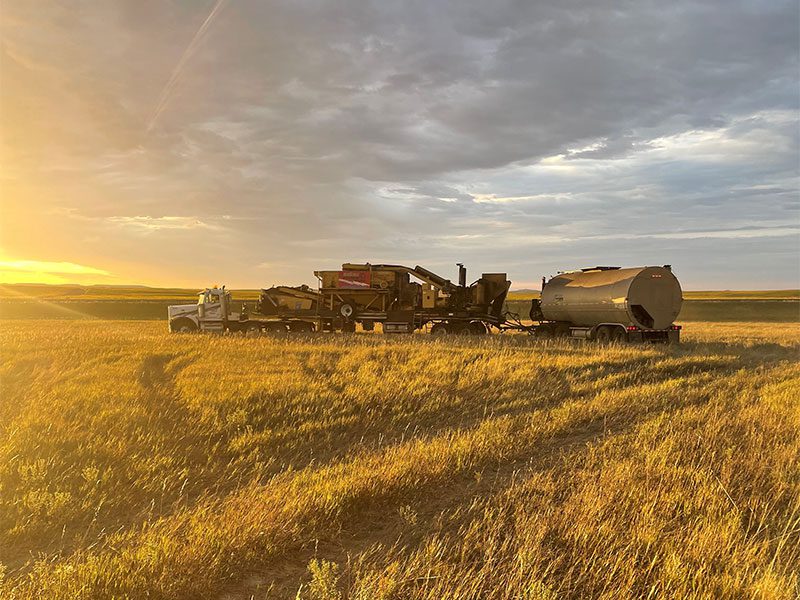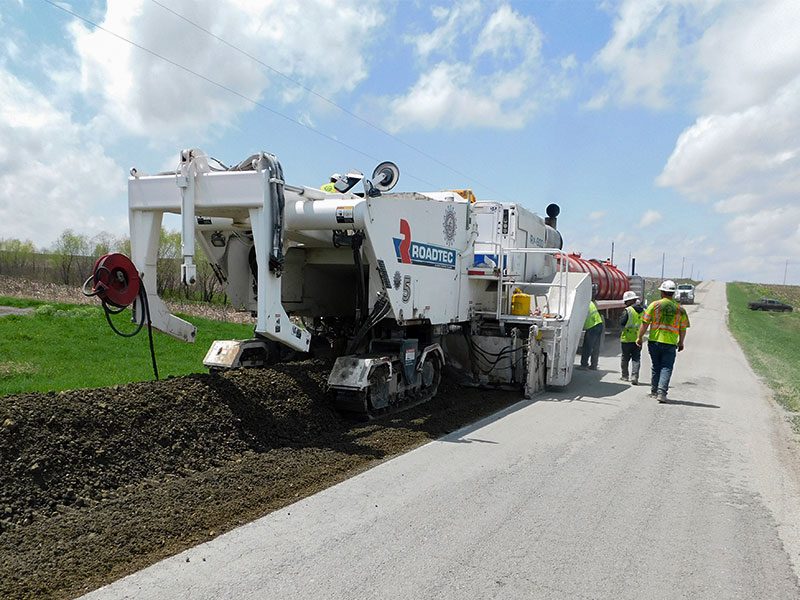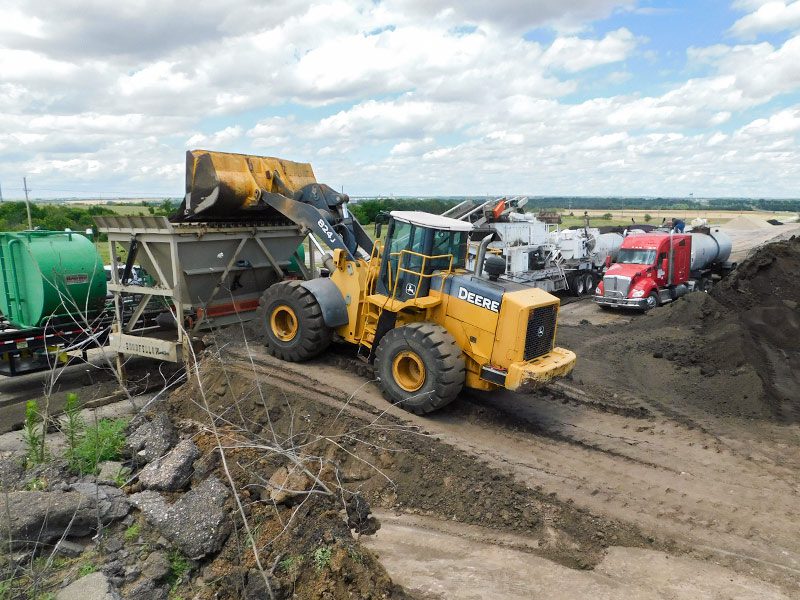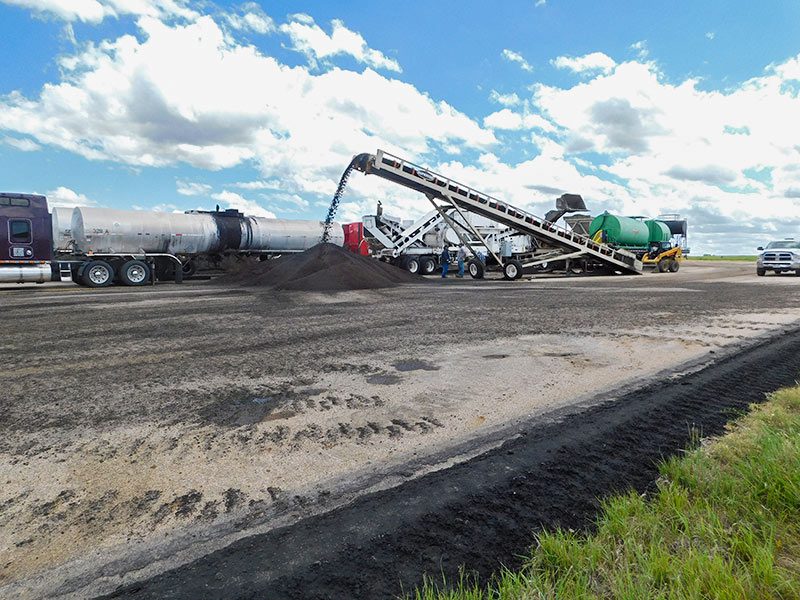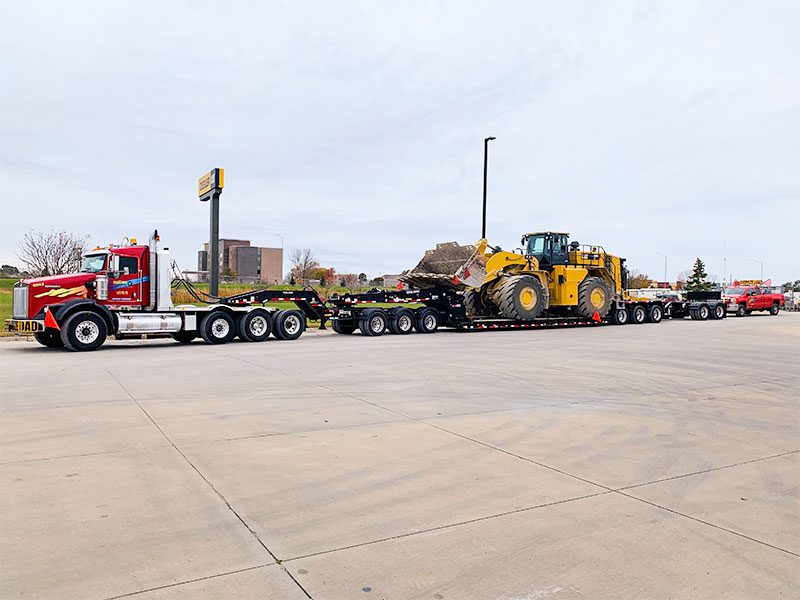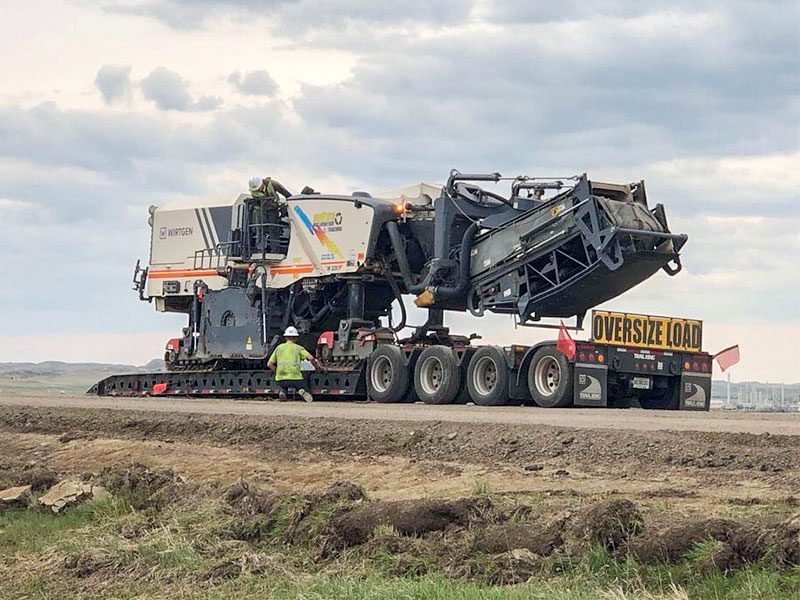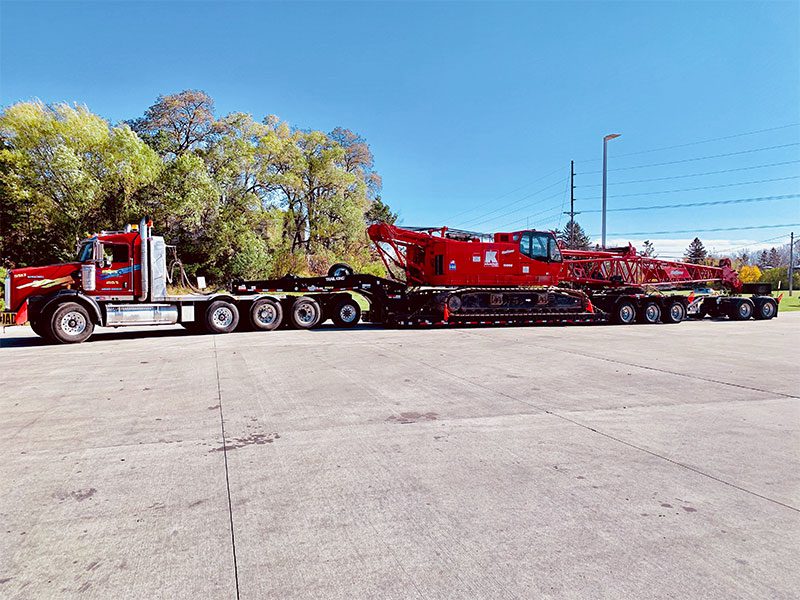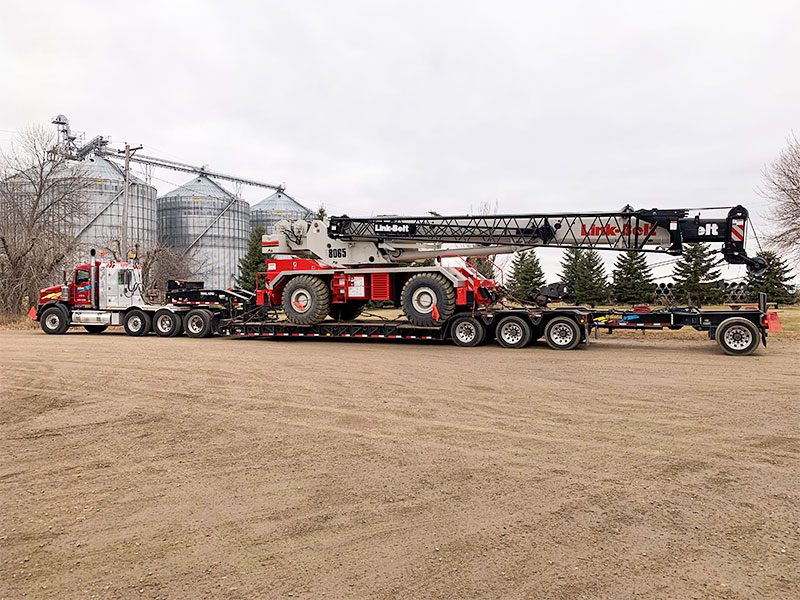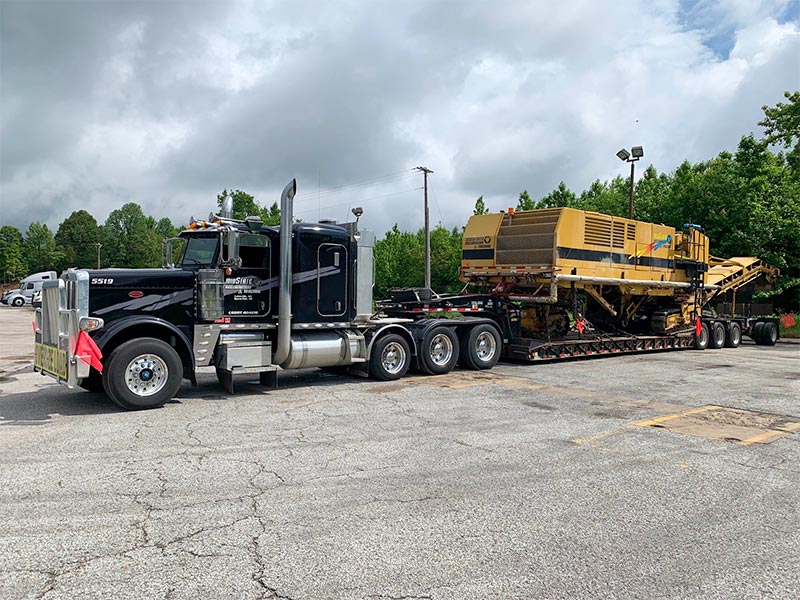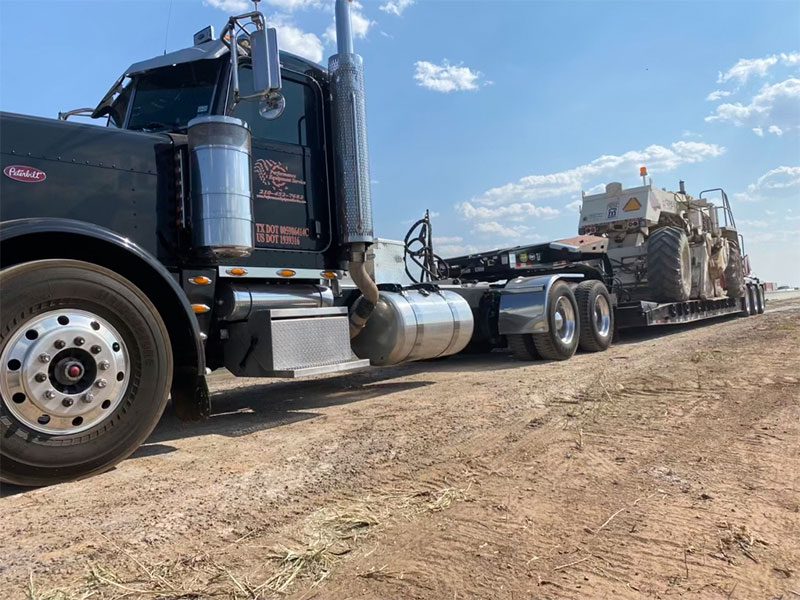Our Services
Milling
Milling, also referred to as Cold Planing or Rotomilling, is a construction process that removes old, weathered asphalt pavement from a roadway surface and loads the material (RAP – Reclaimed Asphalt Pavement) into a truck for removal/transport. The process is performed with a tracked milling machine that uses carbide or diamond tipped teeth on a rotating drum to cut the inplace asphalt layer to a specified depth and cross slope and then load out the RAP with a conveyor. The milling process can remove partial and/or full depth asphalt pavement sections.
Milling Benefits:
- Allows 100% of aged and oxidized asphalt to be recycled
- Economical way to restore the smoothness, grade, and cross-slope of a roadway
- Minimizes construction GHG emissions for roadway reconstruction
Gallery
Reclaiming
Reclaiming, also referred to as Full Depth Reclamation (FDR), is a construction process that pulverizes the entire asphalt pavement section in one pass. This creates a homogeneous blend of insitu aggregate base and RAP (Reclaimed Asphalt Pavement) that remains in-place and is used as a blended base to reconstruct a road. FDR is completed with a modern rubber-tired reclaimer which is equipped with a rotating drum and carbide teeth. The equipment has been engineered to produce a reclaimed agg base that meets project specifications. At times, stabilization additives (liquid and/or powder) are mixed with combination of aggregate base and RAP to improve the structural capacity of the base course.
Reclaiming Benefits:
- Save up to 80% when compared to alternative reconstruction techniques
- This in-place recycling technique can reduce the import/export of materials by up to 90%
- Increase in structural capacity when stabilization additives are used can be incorporated into the pavement design. This will reduce the depth of overlay, saving the project time, reducing cost, and lowering the GHG’s produced through the construction process.
Gallery
Soil Stabilization
Soil Stabilization is a construction process that blends in-place soils with stabilization additives (cement, lime, fly ash). This blending process transforms weak soils into a strong and robust layer. Soil stabilization is performed with a vane spreader and modern rubber-tired reclaimer. The vane spreader broadcasts the stabilization additive on the ground and the reclaimer blends the materials. Rollers and a blade then recompact and shape the blended material per specification.
Soil Stabilization Benefits:
- Drastically reduces construction GHG by eliminating the need to haul off poor soils and import better materials
- Eliminate construction delays caused by saturated soils
- Save up to 40% when compared to normal export/import operations
Gallery
Rumble Strips
Sonic Nap Alert Pattern (SNAP), also simply known as rumble strips, are an innovative road safety feature designed to prevent accidents caused by driver inattention or fatigue. These strips are patterns on the road surface that produce distinct auditory and tactile feedback when a vehicle drives over them. Typically made from grooves or raised bars on the asphalt, they create a rumbling sound and vibration that immediately alerts drivers, effectively snapping them back to attention.
Rumble Strips Benefits:
- Minimize road accidents and increase driver alertness with strategic placement of rumble strips
- Improve traffic management
- Cost-effective and simple yet highly effective way to enhance road safety
Gallery
Cold In-Place Recycling (CIR)
CIR is an in-place, partial depth, asphalt rehabilitation construction process that transforms your old and weathered asphalt pavement into an engineered cold mix. A train of equipment mills up a full lane (11-14 feet) of roadway at a depth of 3 to 4 inches. The Reclaimed Asphalt Pavement (RAP) created by the full land mill is crushed and sized per specification. RAP is then blended with oil to create an engineered cold mix. The cold mix is placed in a windrow and then paved back and rolled to create a smooth surface. A CIR train can recycle about 2 lane miles of roadway per day.
CIR Benefits:
- The CIR process is performed with in-place materials and will reduce construction greenhouse gas (GHG) emissions by up to 90%.
- Owners will see a 30%-50% cost savings when compared to conventional methods.
- Accelerates construction schedules and eliminates the need to detour traffic
Gallery
Cold Central Plant Recycling (CCPR)
CCPR allows owners to transform their piles of Reclaimed Asphalt Pavement (RAP) into an engineered cold mix. The process starts at a centralized RAP pile where a stationary plant will crush and size the RAP per specification and then blend the engineered product with oil to create cold mix. The cold mix material is then transported to a project site where it is placed with conventional paving equipment.
CCPR Benefits:
- Reduces GHG by up to 50%
- Reuses 100% of existing materials
- 20% to 50% cheaper than conventional techniques
Gallery
Heavy Haul Trucking
Transporting big and heavy things is our specialty. No matter what is on the trailer, we treat it as our own. The experienced SurfaceCycle team of heavy haul drivers and vast fleet of lowboy tractor/trailers are ready to move your next oversize load safely and efficiently. Our team can take care of the all the details, whether it’s a permit or a pilot car, we have you covered.
Heavy Haul Benefits:
- Tractor/Trailer configurations that range from 7 to 12 axles
- Millions of safe miles driven
- Robust Late Model fleet
